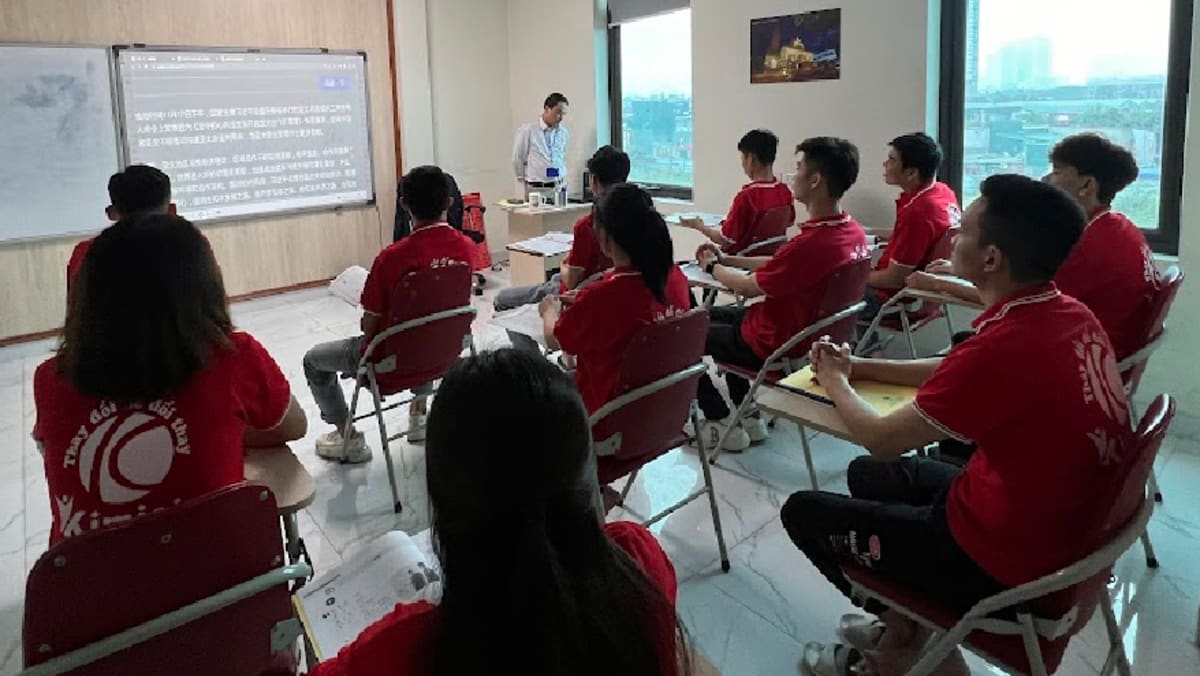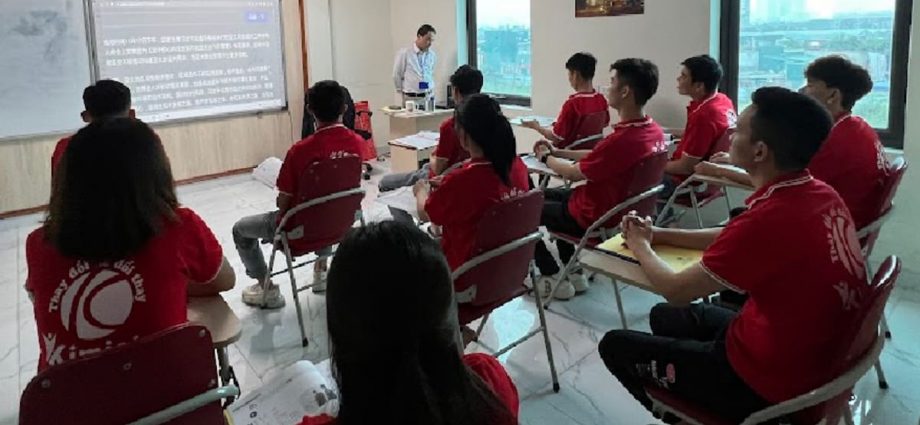
Mr Ta’s father is the village chief, and earns some extra income. Even so, the family had to borrow nearly US$3,000 to pay for Mr Ta’s training.
The family said they are betting on him to turn their fortunes around.
“Most of our young people cannot find jobs after high school. My family’s income for a whole year is less than US$1,600. (My son) would earn that much in a month (in the Philippines),” said his father, Mr Chao O Pet.
Workers are promised a monthly salary of up to US$1,700 to work at the online casinos. The amount is up to four times what they are likely to earn in Vietnam, and does not require a college degree or manual labour.
Recruitment agencies use social media to reach out to potential recruits, touting high salaries, free meals and accommodation, and fancy offices in skyscrapers.
It is a stark contrast to life in rural Vietnam, where many trainees like Mr Ta are from.
“My goal is to make enough money in the first six months to pay off my family’s debts. I also hope I can make money to send my younger brother to college,” Mr Ta said.
LIFE IN POGOS
Mr Ta was recruited by a Hanoi-based agency for a POGO job in Cavite province, some 30km southwest of Philippines’ capital Manila.
Along with a dozen other new hires, they entered the Philippines as tourists. The recruitment agency told the group that they should not have issues getting past immigration, but if they did, the company would handle it.
The operators would only arrange for work visas after the workers began their jobs.

